So YOU want to learn how to play Dungeons and Dragons? Your first time playing D&D 5e?
Good choice :-) It's a great creative outlet, a social gathering, and a ton of fun!
But learning how... and knowing where to even go to learn how... can be disorienting.
This blog post will show you the best ways to prepare for your first D&D campaign.
I've purposefully made it a list of simple suggestions: only the essential tools and impactful steps you can take. Don't worry: this is NOT a long, thorough, complicated, 10,000 tip definitive guide. It's the bare... but sufficient... necessities.
So whether you were invited by a friend, inspired by Stranger Things, or are just curious about your friendly local game store... if you do the following, you'll have enough confidence to sit down at your first DND session and have fun right away!
Our Blog Helps DMs and New Players
Sign Up Now
Essential Tips and Steps for First Time Players
Buy the Player's Handbook
Build a Character
Watch/Listen to an Actual Play
Get Yo'self Some Dice
Listen to a Podcast for Players
Ask your DM for a Training Session
No DM? ...Find a Table
Buy the Player's Handbook
One great thing about D&D is that while you could invest hundreds of dollars on maps and minis and dice and VTT programs... you don't have to. You can get the full experience while spending next to nothing. Very few material components are needed to have fun when a game takes place in your imagination!
That said... if you are a first time DND player... go get the Player's Handbook (PHB).

The Player's Handbook has all the basic rules, spells, and character classes.
Everything a player needs... whether making a character or looking for an explanation for a confusing rule... this book contains it all. Some of the information is online, but its scattered all over the place; this book has the essentials in one place... which makes it essential.
Unless you are living with someone that already owns it, I know of no justification for not getting a copy. After all, it is the handbook to guide you as a player!
And when you buy it... read it! While it isn't necessary to read every page line-by-line, you do want to get to know the types of characters you can create and try to form some kind of idea for the character you'd like to play.
Also, it's not an ancient, forbidden tome... so feel free to mark it up! Underline it, add sticky notes for questions, and journal any adventure ideas that come to mind.
You can purchase it at nearly every friendly, local game store, Target, Barnes and Noble, etc. Wizards of the Coast has a list of places it can be purchased here: https://dnd.wizards.com/products/rpg_playershandbook.
Build a Character
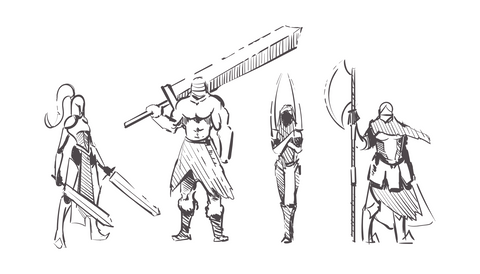
You play Dungeons and Dragons by role-playing your character. Ergo, to play DND, you have to create a character. There are two main ways to do this:
Use an Online Character Builder
With this method, there is little room for error. Online character builders will ensure you build a character allowable under the basic D&D guidelines (ie. your tablemates won't scratch their heads when you try to cast Fireball as a level 1 rogue).
Online character builders ask you a handful of questions and then automatically generate a complete character for you.
This is good when you know your campaign will be very short, say 3 - 5 sessions. But play anything longer and, as you get better at the game, you will begin to resent that you are playing a character you may not be very interested in.
The character generator at D&D Beyond is considered the gold standard, but I find AIDND to be the simplest of the bunch.
Fill Out a Character Sheet from Scratch
The other "OG" method is to use the PHB to make your character. For each class, the PHB offers a suggested build that will result in a pretty good character.
However, they don't fill in everything for you like online character builders. While it's more work, it leaves room for you to flex your creative muscles and build a character that you find interesting and compelling session after session.
Like everything in DND, this is easier if you have someone there helping you. The best time to do this is during "session zero," which is the unofficial first session of any campaign. Here DMs set expectations and players can ask clarifiying questions as they create their new character.
Awesome Dice has the perfect guide for filling out a character sheet all on your own as a first time DND player:
Watch/Listen to an Actual Play

Image © Acquisitions Incorporated: The C Team
An "actual play" YouTube video or podcast is similar to watching someone playing a video game on twitch, but you watch other people play DND instead.
And while it is definitely not the same thing as playing (and not nearly as fun), they can still be a good time. More importantly, they are great examples of what a session feels like and what kind of choices and actions players generally take.
An "actual play" provides examples of the types of choices players make in DND.
Here are three of the most popular (and one unique) DND actual plays:
Critical Role: https://www.youtube.com/c/criticalrole
Acquisitions Incorporated, "The C Team": https://www.youtube.com/watch?v=ywZ0TcUh3l0
Adventure Zone: https://open.spotify.com/episode/3gxvGmKGO6X3HFGmcquZdt?si=82ef8ff7e8544451&nd=1
BomBARDed: https://open.spotify.com/episode/7N1S56lYzpEZY12Fcly3zo?si=40c98baee9bd4721&nd=1
Get Yo'self Some Dice
Beyond the PHB, writing utensils, and friends... you need only one more thing: dice. But not just any dice... you can't salvage your Yahtzee and Risk dice to play Dungeons and Dragons.
You need a specific set of 7 different dice containing one of each of the following: a d20 (twenty-sided die), d12, d10, d% ("percentile die"), d8, d6, and d4. DND is more than just improve: a lot of your actions will pass or fail based on how you roll the dice. Which means you literally cannot play the game without them.
Now... this blog post is on an actual dice shop... so of course we would prefer you to purchase your 7-dice set here... we have metal dice... slick sharp edge dice... and even Witcher and Cthulhu dice.
That said... there are online dice rollers you an use... like this one. You can even type "roll d20" in Google and Google's own dice roller will come up.
BUT... and this is key... while an online dice roller will be just as random and just as effective at determining the outcomes of your character's actions, I promise you this:
An online dice roller is never as satisfying as rolling a physical set of dice.
The illusion of control as you shake the dice in your hands... the suspense as they tumble across the table... the excitement or dead as you get a high or low roll... none of that can be replicated with online dice rollers!
Once you get your first set, you'll understand. Heck, you'll probably want to buy some more later! But for now, all you need to play is one 7-dice set.
Listen to a Podcast for Players
Lots of podcasts out here are geared towards helping DMs design and run better campaigns. But there are plenty of podcast episodes featuring seasoned players discussing what makes a "good" DND player and how so many first time DND players get it wrong.
While no one "wins" Dungeons and Dragons like in sports or other board games... people can definitely lose.
You lose when it's boring. You lose when players argue instead of laugh. You lose when no one is focused or engaged. Simply put: you lose when people aren't having fun.
Fun looks different for different games and activities, so learning what you can do to make DND fun can be helpful. Below are some episodes I believe to be particularly helpful for players.
"It's a Mimic": https://open.spotify.com/episode/7AOsc2ZwMOyWelXqNN26If?si=8b9bcde794334ea8
"Advice and Advantage": https://open.spotify.com/episode/6dUo5oHXDuSikQCQtBxieJ?si=fb5036c472724f05
“How to Be a Great GM”: https://www.youtube.com/watch?v=q-C9I_5_1Dk
“The DM Lair”: https://www.youtube.com/watch?v=orgNagc7cLY
Ask your DM for a Training Session

DND is an immersive, imaginative game: it is a lot more fun if you can immerse yourself in the world, really feel like you are on horseback or crossing swords with orc pirates. But you are brand new to the game, all the rolling and numbers and bonuses can take you out of the adventure and make it feel like a 5th grade math problem.
That is why, in my opinion, your very first time shouldn't be 'complete' DND. And, honestly, shouldn't even feature a character sheet (but that is neither here nor there...). So if you already have a table and a DM, I STRONGLY recommend you ask them to run a scaled back, intro session.
If your DM has no idea what I am talking about, show them this amazing Runehammer video. It's all about intuitively teaching people the fundamentals of DND, the essense of the game, without overwhelming them with numbers and math.
No DM? ...Find a Table

Image © Gryphon's Nest Gaming & Comics
If you don't have a Dungeon Master of your own but are eager to play, here are two options for you: find a table or start your own game with your friends.
Find a Table
Yes, I know those people will be strangers, and I know it might be intimidating. I empathize with that... but know the D&D community is one of the friendliest communities you'll find on the planet, so I guarantee you'll be taken care of.
Most likely, your local game shop will have someone running games on a regular schedule and if not, they know of several groups that play. Just tell everyone that you are a first time DND player and the experienced players will gladly show you the ropes.
You can also look on Facebook for a group that might be playing online and need a player, or you can check out this site, which will allow you to join all sorts of campaigns across the world, many of them free!
Start Your Own Game
What do you do if you and your friends all want to play DND but none of you have played before? Be like the first DND players back in 1980’s and teach yourselves.
Now with all the podcasts and actual plays, you have a HUGE advantage over those first players and don't have to just read, read, read.
When all else fails, just go find a table, plop yourself down, and play!
Wizards of the Coast has also provided two resources to help people learn all on their own: the Essentials Kit and Starter Set. The Starter Set is more the “spirit” of DND, but reduces customization so players can hit the ground running. But the Essentials Kit offers even more assistance in creating a character than the PHB.
And if that wasn’t enough, the lovely people at Geek & Sundry have made a lovely video of a DM walking several celebrity (and brand new) players through character creation and the entire starter kit adventure!
Watch episode 1 below:
https://www.youtube.com/watch?v=-oIIZJeVGpc
Conclusion
That's it. It isn't any more complicated than that.
Ultimately, if you want to learn DND… you need to play DND. It’s just like learning a language: there is only so much you can learn in the classroom… eventually you need to immerse yourself in the culture that calls that language its own.
Clearly we think DND and other tabletop role playing games are pretty awesome (hence Awesome Dice!) and we think you are pretty awesome for giving it a try.
So play… immerse yourself in the fantasy world… don't be afraid to be silly and make mistakes… its your first time playing DND; absorb every moment like a sponge!
And whether you decide to play shorter campaigns or longer, epic campaigns, you'll quickly discover that the greatest part of any adventure are the friends you make along the way!
By Riley Rath - Freelance DnD Copywriter

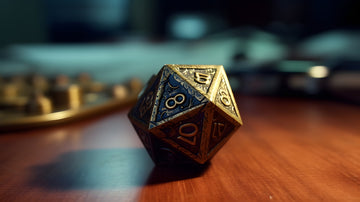

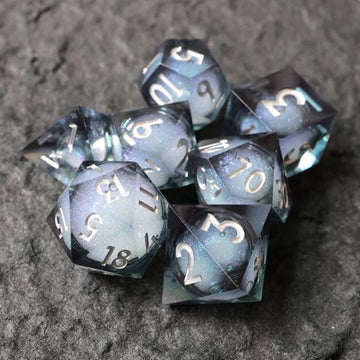
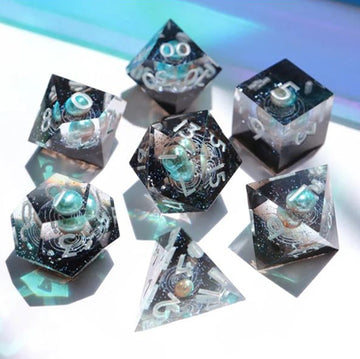
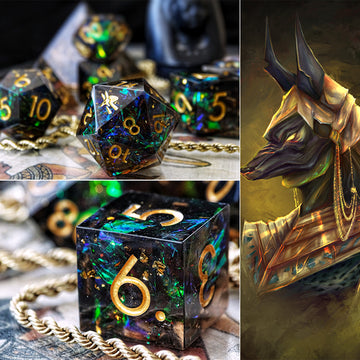
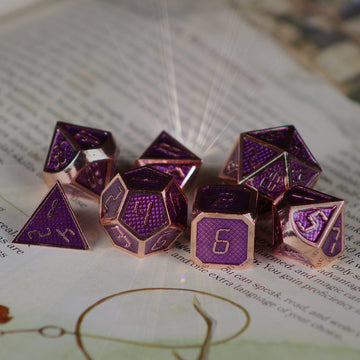
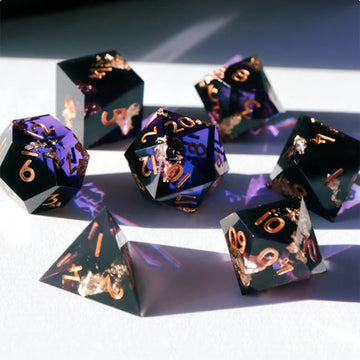
We have since also bought the Essentials kit, which added more dice, DM screen, another rule book and an extension to the inital adventure. So also an excellent second step. The cards that come with it also make things like tracking initiative easier. So for not much outlay we have all the basics and around 40 hours+ of adventures.